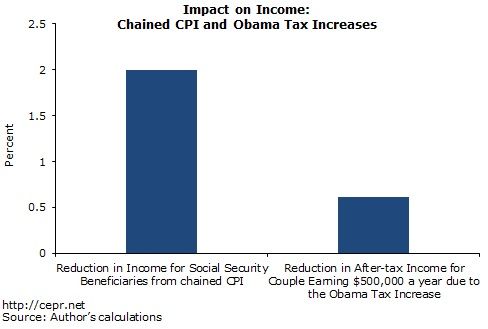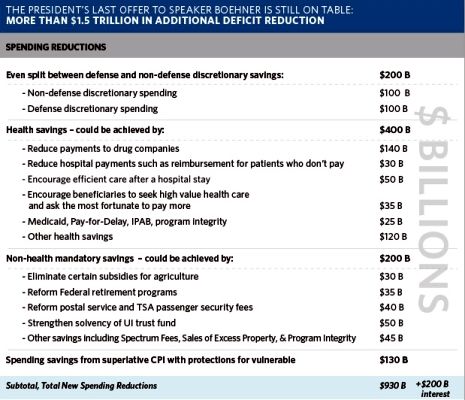Cross posted from The Stars Hollow Gazette
As recounted by relapsed blogger David Dayen, intrepid blogger, economist and former college professor Duncan Black, aka Atrios, became frustrated with stagnating wages over the last ten years that have been putting working class families at risk of being unable to sustain their standard of living past retirement.
(I)n late 2012 he embarked on a sustained crusade, on his blog and in a series of columns for USA Today, to inject a single idea into America’s policy discourse: “We need an across-the-board increase in Social Security retirement benefits of 20 percent or more,” he declared in the opening of a column for USA Today. “We need it to happen right now.”
The proposal was not exactly attuned to the political winds in Washington. Indeed, for anyone inclined to think in terms of counting potential votes in Congress-especially this Congress-the idea of expanding Social Security is the epitome of a political non-starter. Black’s proposal was attuned, however, to a mounting pile of research and demographic data that describes a gathering disaster. The famously large baby boom generation is heading into retirement. Thanks to decades of stagnant wages and the asset collapse of the Great Recession, more than half of American working-class households are at risk of being unable to sustain their standard of living past retirement. To put it even more starkly, according to research by the economists Joelle Saad-Lessler and Teresa Ghilarducci, 49 percent of middle-class workers are on track to be “poor or near poor” after they retire.
There is very little safety net left to break this fall. The labor market for older workers is bleak. Private pensions are largely a thing of the past. Private savings are so far gone that some 25 percent of households with 401(k) and other retirement plans have raided them early to cover expenses, and a growing number of Americans over age 50 find themselves accumulating, not settling, debt. On the whole, 401(k)s have proved a “disaster,” as Black puts it, one that has enriched the financial sector but lashed the country’s retirement security to a volatile stock market-and left 75 percent of Americans nearing retirement age in 2010 with less than $30,000 in their accounts.
What’s left? Social Security. Though it was never meant to be a national retirement system all by itself, that’s increasingly what it has become. For Americans over age 65 in the bottom half of the income distribution, Social Security makes up at least 80 percent of retirement income.
In one of those columns in March of this year, Black used the “three legged stool” metaphor to bolster his argument to expand Social Security:
According to the Pew Research Center, the median household wealth for those aged 65+ is about $170,000. While that sounds like a significant amount of money, as Dean Baker of the Center for Economic and Policy Research pointed out, this is actually a trivial amount of wealth for people with little or no income other than Social Security benefits. Remember that this figure includes housing wealth. Even if it was a bunch of cash in a bank account, it wouldn’t actually provide for a significant supplement to other retirement income, but the reality is that many people have a house and not much else. [..]
Social Security was envisioned as one leg of a three-legged stool of retirement, along with employer pensions and private savings or insurance (though the metaphor itself was devised after its creation). The problem is that two of those legs have shrunk significantly. This is not a stool one can comfortably sit on. This is not a stool most people will be able to sit on at all. The system, as envisioned, is failing.
We can goad and cajole people into saving. We can provide incentives for people to save for their retirement, and penalize them for raiding those funds before they retire. We can subsidize employer contributions to retirement funds.
But we have been doing all of these things for decades, and they haven’t worked. The majority of people nearing retirement will not have sufficient funds to retire with anything resembling economic security and comfort.
Well our frustrated blogging buddy’s idea is at long last taking root. Two Democratic Senators, Tom Harkin of Iowa and Mark Begich of Alaska, have introduced legislation that not only would expand Social Security but strengthen it.
The Strengthening Social Security Act of 2013 would:
• Strengthen Benefits by Reforming the Social Security Benefit Formula: To improve benefits for current and future Social Security beneficiaries, the Act changes the method by which the Social Security Administration calculates Social Security benefits. This change will boost benefits for all Social Security beneficiaries by approximately $70 per month, but is targeted to help those in the low and middle of the income distribution, for whom Social Security has become an ever greater share of their retirement income.
• Ensure that Cost of Living Adjustments Adequately Reflect the Living Expenses of Retirees: The Act changes the way the Social Security Administration calculates the Cost of Living Adjustments (COLA). To ensure that benefits better reflect cost increases facing seniors, future COLAs will be based on the Consumer Price Index for the Elderly (CPI-E). Making this change to Social Security is expected to result in higher COLAs, ensuring that seniors are able to better keep up with the rising costs of essential items, like health care.
• Improve the Long Term Financial Condition of the Trust Fund: Social Security is not in crisis, but does face a long-term deficit. To help extend the life of the trust fund the Act phases out the current taxable cap of $113,700 so that payroll taxes apply fairly to every dollar of wages.
The legislation has the support of AFL-CIO, AFSCME, the Alliance for Retired Americans, the National Organization for Women (NOW), the National Education Association, Paralyzed Veterans of America, Strengthen Social Security Coalition, Social Security Works, the United Automobile Aerospace & Agricultural Implement Workers of America (UAW), United Steelworkers, MoveOn.org and others.
The Harkin/Begich bill has now been endorsed by Ohio’s Senator Sherrod Brown (D) who has also introduced legislation that would change the cost Of living formula for Social Security to better reflect seniors’ true expenses:
With the introduction of several proposals that would reduce Social Security benefits for seniors by changing the formula used to calculate annual cost-of-living adjustments (COLA), U.S. Sen. Sherrod Brown (D-OH) today joined the National Committee to Preserve Social Security and Medicare (NCPSSM) to announce the Consumer Price Index for Elderly Consumers Act. The new legislation would change the COLA formula for Social Security to more accurately reflect the expenses of senior citizens. Because of the method by which inflation is calculated, seniors and other Social Security recipients did not receive a COLA in 2010 and 2011, even though the price of prescription drugs, food, energy, and other necessities continued to rise. [..]
Social Security COLAs are calculated using the Consumer Price Index for Urban Wage Earners and Clerical Workers (CPI-W). The CPI-W was chosen as the measure of inflation because it was the only measure available at the time the automatic COLA was established in 1972. The CPI-W measures changes in the prices of goods and services purchased by those who earn more than half their income from clerical or wage occupations. However, the CPI-W formula only represents about 32 percent of the U.S. population and does not accurately represent the inflation experience of older Americans. According to the Congressional Research Service, between 1982 and 2009, the cost of living under the CPI-W rose at an average rate of 2.9 percent, while the cost of living for seniors-as measured by an experimental CPI-E-rose at a rate of 3.2 percent.
Brown’s legislation would formalize a Consumer Price Index for the Elderly (CPI-E). The CPI-E would take into account seniors’ specific consumption habits, including increased prescription drug and energy costs, and would be used to determine the COLA for Social Security benefits.
It is time for President Barack Obama and congressional Democrats start acting like progressives and back both the Harkin/Begich and Brown bill. The president and the Democratic leadership should remove Social Security as a bargaining chip from the faux debt/deficit austerity negotiations and start protecting some of our most vulnerable citizens.
You can support the Strengthen Social Security Act (S.567) by signing this petition
Thanks, Atrios.


